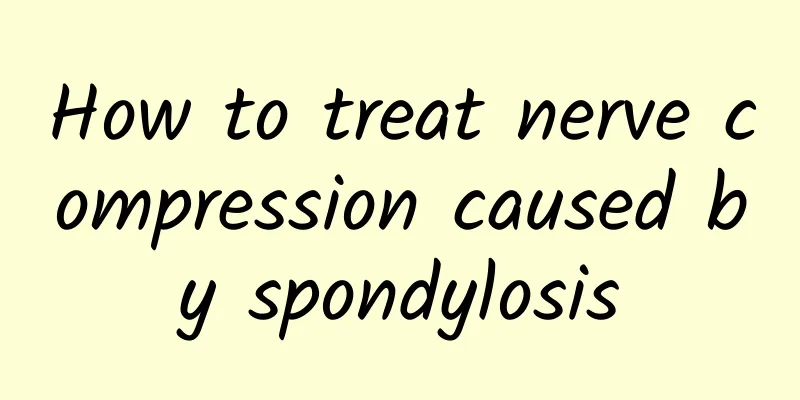Undigested food stuck in the stomach?

|
Modern people are not only under great pressure at work, but also in life. They often work overtime and stay up late, which leads to irregular diet and life. In particular, some people have food stuck in the stomach and cannot be digested after overeating, which makes them very uncomfortable. In fact, this is generally caused by gastrointestinal dysfunction or indigestion. We can take some drugs to promote gastrointestinal motility orally in Xi'an, observe for a period of time, and if it still doesn't work, go to the hospital as soon as possible to find out the cause and treat it symptomatically. What causes indigestion symptoms? Occasional indigestion can be caused by eating too much, drinking too much alcohol, or taking painkillers such as aspirin frequently. Eating when you are stressed or eating unfamiliar food can also cause it. Chronic persistent indigestion can be neurological, that is, caused by mental factors, or it can be caused by certain organic diseases such as chronic gastritis, gastric and duodenal ulcers, chronic hepatitis and other wasting diseases. Patients who have had their gallbladder removed may also often suffer from indigestion. Regardless of the reason, the stomach lacks power and cannot work normally, so food stays in the stomach for too long. What are the clinical manifestations and preliminary diagnosis of indigestion symptoms? Symptoms include intermittent upper abdominal discomfort or pain, fullness, heartburn (acid reflux), belching, etc. They often do not want to eat or try to eat as little as possible due to discomfort such as chest tightness, early satiety, abdominal bloating, etc. They also have difficulty sleeping at night and often have nightmares after falling asleep. After going to the hospital for a check-up, except for mild gastritis found under gastroscopy, other tests such as B-ultrasound, X-ray angiography and blood biochemical tests did not detect any abnormal manifestations. Functional dyspepsia: Those who have the above-mentioned indigestion symptoms but have no definite organic disease to explain are called functional dyspepsia (FD). This type of indigestion has the highest incidence and most people have experienced it. The main causes of the disease are related to mental and psychological factors, such as mood swings, sleep status, poor rest, stimulation from tobacco and alcohol, etc. Statistics from Western countries show that FD accounts for approximately 20% to 40% of digestive system diseases. FD can be divided into three subtypes based on different symptoms: (1) Ulcer-like dyspepsia, which is characterized by symptoms of peptic ulcer without the presence of ulcer. Recent studies have found that patients who are often faced with stress may have a stress reaction with intermittent increase in gastric acid excretion. In addition, motility disorders prolong and increase the effect of gastric acid on mucosal damage. Therefore, patients with this type may improve by eating or taking H-receptor antagonists. (2) Dysmotility-like dyspepsia type, which is characterized by clinical manifestations of gastric retention symptoms. Patients have difficult-to-localize upper abdominal pain or discomfort, which is often caused by eating or aggravated after meals. At the same time, they also have upper abdominal distension after meals, early satiety, nausea or vomiting, and poor appetite. (3) Specific dyspepsia type: patients with FD symptoms but not meeting the above two groups of characteristic dyspepsia. Organic dyspepsia: After examination, it can be clearly determined that the indigestion symptoms are caused by a certain organ disease, such as liver disease, bile duct disease, pancreatic disease, diabetes, etc. For these patients, treatment is mainly targeted at the cause, with auxiliary supplementation of digestive enzymes or improvement of gastric motility to relieve indigestion symptoms. Therefore, after the symptoms of indigestion occur, you should check promptly, and first confirm whether there are other diseases associated with it. Diet and lifestyle adjustments: Avoid greasy and irritating foods, avoid eating raw, cold and acidic foods, as well as coffee, chocolate, potatoes, sweet potatoes, etc., quit smoking and drink less alcohol. Avoid overeating and eating too much before going to bed. It is best to eat small meals frequently. Mental factors are the main cause of indigestion, so special attention should be paid to maintaining a happy mood and a good state of mind. |
<<: Does diarrhea in late pregnancy have an impact on the fetus?
>>: What's the matter with always pulling water?
Recommend
How to treat Bell's palsy? Here are three methods
Speaking of Bell's palsy, I believe many peop...
The dangers of colitis
Colitis is a common disease. We know that colitis...
Why do we need to do external pelvic measurement?
Some women who have not given birth feel strange ...
What is the good Chinese medicine remedy for spontaneous sweating and night sweats?
It is normal for people to sweat when it is hot. ...
What is the effect of moxibustion on the navel?
The reason why we sometimes need to use moxibusti...
What is neurotic syndrome? Symptoms and care methods of neurotic syndrome
Neurotic syndrome is not a disease, but a group o...
What are the effects of Gerbera
Gerbera hairy, also known as rabbit ear wind, one...
What causes moles on the skin
There are many kinds of moles, both congenital an...
What should I eat after having a medical abortion?
After a woman has had a medical abortion, her bod...
What is the medicinal value of longan meat?
my country is the origin of longan, which is also...
Will I get pregnant if I ejaculate inside you right after my period?
Some people are more worried about having sex and...
How to treat heel pain
Many times, we experience heel pain. In fact, hee...
Symptoms of thyroid disease
Thyroid disease in life is mainly caused by a lac...
Can teenagers grow taller by taking Chinese medicine?
Most parents hope that their children can grow ta...
What are the signs of cerebral vascular rupture?
When it comes to cerebral vascular rupture, many ...









